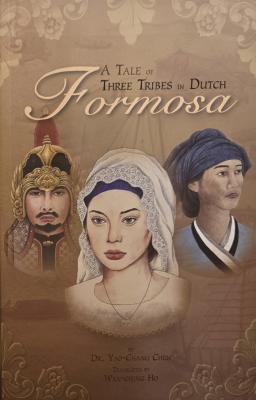Started two years ago under the auspices of the Taipei City Government, the biennial International Poetry Festival is back to provide deep thoughts on life, the universe and everything else.
While it is sometimes a little hard for the hoi polloi to take the idea that it is poetry that is at life's cutting edge, rather than food, accommodation and education, the encouragement given to poetry by such events is an important part of creating a fully formed local literary culture.
But of course, no Taiwan arts festival would be complete without a fully integrated "multimedia element," and this year's Second International Poetry Festival is no exception. "Poems on electronic paper" will be a major part of the enterprise, which also offers the advantage for the overly sensitive to stay at home and still get the benefit of the audio-visual poems that have been uploaded to the Internet and which can be found at http://dcc.ndhu.edu.tw/poem/2003.
In case poetry itself is not enough -- and some heavy-hitters from overseas have been brought in to enliven the event -- there will also be events featuring performance artists in various mediums from Luo Man-fei (羅曼菲) and Cloud Gate II to Leon Dai (戴立忍) and Labor Exchange (交工樂團).
While this is being done in the name of broadening the horizons of poetry, it looks more like a case of anxiety on the part of organizers that mere poets will never bring in the crowds.
While many of the events will be taking place at Chungshan Hall, approximately 30 percent will be distributed to other venues including Eslite Bookstore's Tunhua South Road branch, Taipei Artists' Village, Tamkang University Campus and so on, to give the event citywide relevance.
Tomorrow and Sunday, the event will start off with a major show of multimedia poetry at Chungshan Hall, which will include poetry recitals, singing, dancing and theatrical performances. Next week on Saturday, Sept. 20, there will be a "night of poets," bringing together major local and foreign poets to talk about their art. Among the biggest names will be Jean-Pierrre Simon, Wolfgang Kubin and Christian Bok.
Theme events will also feature as part of the festival, with sessions devoted to women's poetry, Aboriginal poetry, poetry celebrating rural Taiwan and, of course, Internet poetry.
All these events and much more will be taking place starting tomorrow, through Sept. 26. Details for events can be found at poetry.culture.gov.tw.

May 11 to May 18 The original Taichung Railway Station was long thought to have been completely razed. Opening on May 15, 1905, the one-story wooden structure soon outgrew its purpose and was replaced in 1917 by a grandiose, Western-style station. During construction on the third-generation station in 2017, workers discovered the service pit for the original station’s locomotive depot. A year later, a small wooden building on site was determined by historians to be the first stationmaster’s office, built around 1908. With these findings, the Taichung Railway Station Cultural Park now boasts that it has

The latest Formosa poll released at the end of last month shows confidence in President William Lai (賴清德) plunged 8.1 percent, while satisfaction with the Lai administration fared worse with a drop of 8.5 percent. Those lacking confidence in Lai jumped by 6 percent and dissatisfaction in his administration spiked up 6.7 percent. Confidence in Lai is still strong at 48.6 percent, compared to 43 percent lacking confidence — but this is his worst result overall since he took office. For the first time, dissatisfaction with his administration surpassed satisfaction, 47.3 to 47.1 percent. Though statistically a tie, for most

Six weeks before I embarked on a research mission in Kyoto, I was sitting alone at a bar counter in Melbourne. Next to me, a woman was bragging loudly to a friend: She, too, was heading to Kyoto, I quickly discerned. Except her trip was in four months. And she’d just pulled an all-nighter booking restaurant reservations. As I snooped on the conversation, I broke out in a sweat, panicking because I’d yet to secure a single table. Then I remembered: Eating well in Japan is absolutely not something to lose sleep over. It’s true that the best-known institutions book up faster

The excellent historical novel by Chen Yao-Cheng (陳耀昌) is a gripping tale of Taiwan in the 17th century, called Formosa at the time, told from the perspective of characters representing the three major ethnic groups (the “tribes” mentioned in the title): the indigenous community, the Dutch and the Chinese. Another element that makes this book stand out is the female perspective, as two of the main protagonists are Maria, the daughter of the Dutch missionary Hambroeck, and Uma, an Aboriginal woman with a strong character. The main Chinese character is Chen Ze, a man in charge of a merchant ship